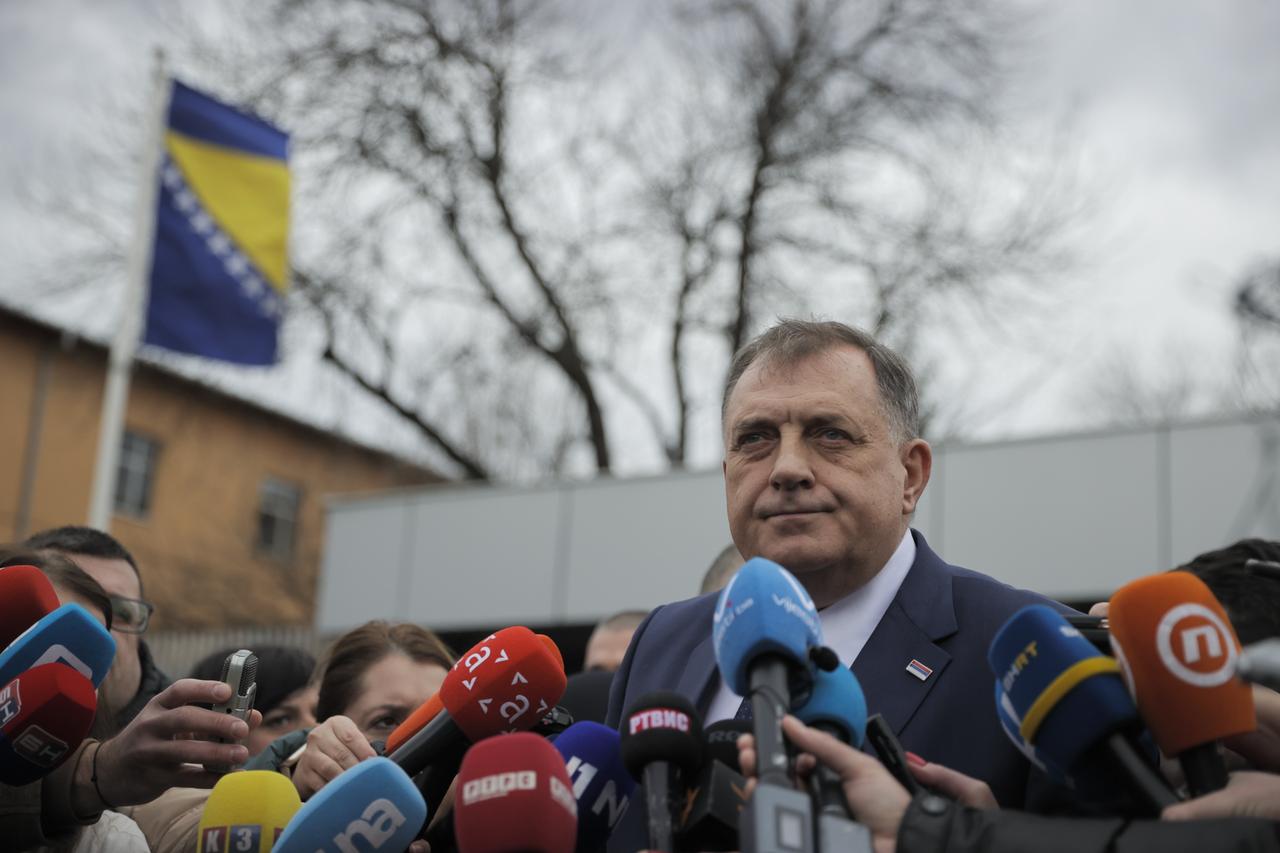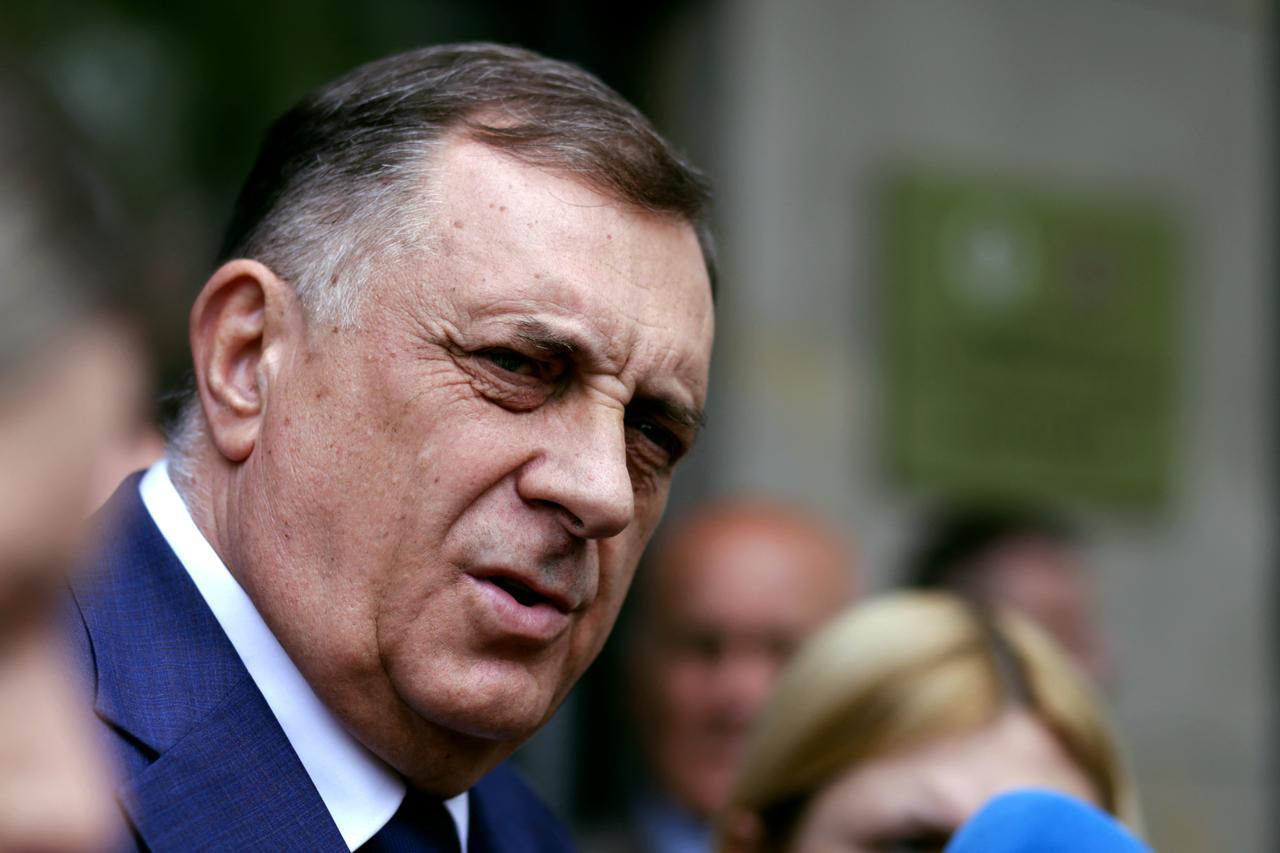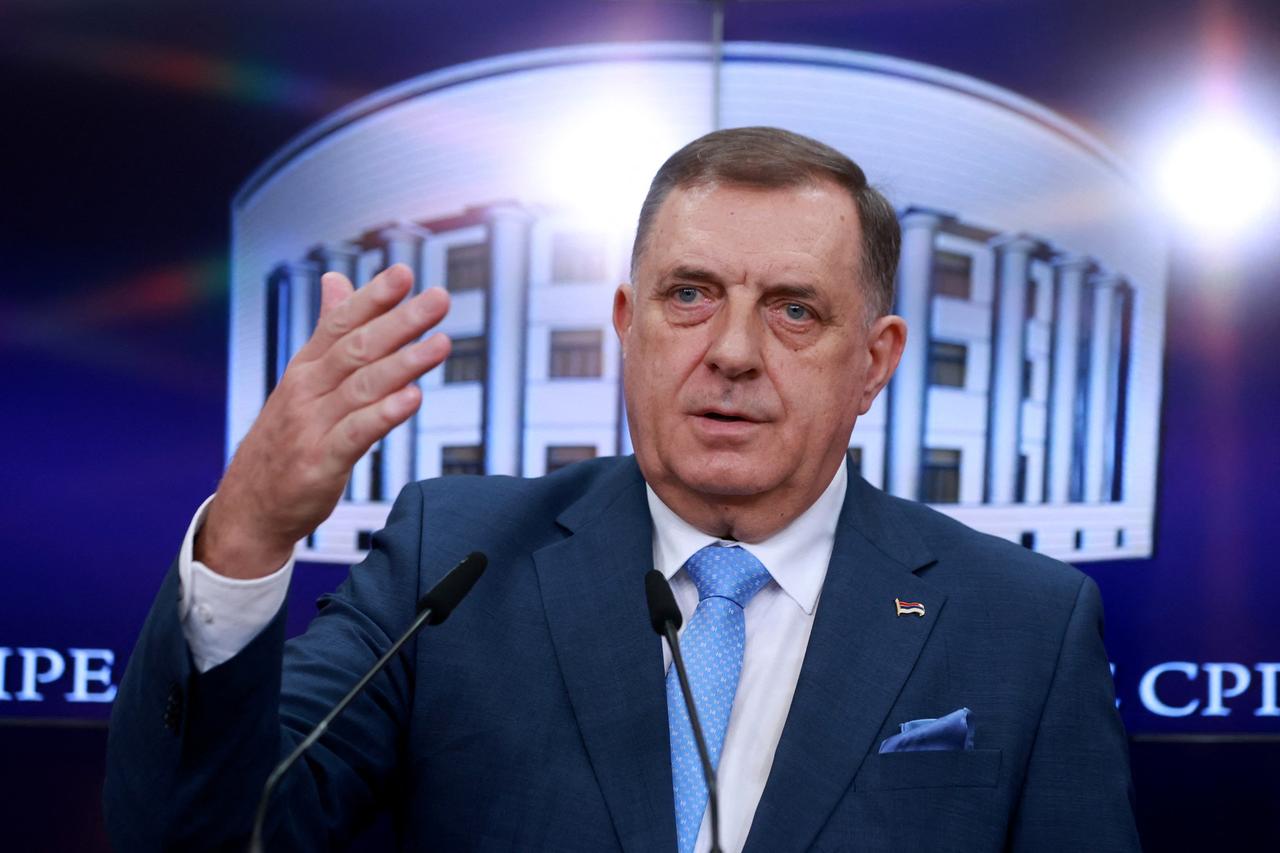
In a late-night vote Friday, the National Assembly in Bosnia’s Serb-run Republika Srpska approved a referendum asking citizens whether they accept the state court’s verdict convicting the entity’s president, Milorad Dodik.
Lawmakers in Republika Srpska’s regional assembly voted late Friday to hold the referendum on Oct. 25, creating a new challenge to Bosnia’s weak central government.
The session followed the Aug. 1 final verdict by the Court of Bosnia and Herzegovina, which sentenced Dodik to a year in prison and imposed a six-year ban on holding the office of RS president. He was convicted of not complying with the decisions of the High Representative, Christian Schmidt, the international overseer of Bosnia’s peace accords.
The referendum comes just days before new elections for the RS presidency are expected. The decision was adopted without support from opposition parties, including the Party of Democratic Progress, the Serb Democratic Party, Narodni Front, and the Justice and Order List. Fifty of 83 representatives voted in favor. Under RS law governing referendums, however, the vote cannot be legally binding because it addresses an issue outside the entity’s jurisdiction.

Bosnia’s Serbian entity faced international criticism Saturday for moving forward with the referendum. The European Union delegation in Bosnia said the court ruling against Dodik “must be respected.”
“Subjecting a court decision to a public vote runs counter to the rule of law and the independence of judicial authorities,” the EU statement added on X. “We expect the Republika Srpska authorities to de-escalate the situation and respect the sovereignty, territorial integrity, and constitutional and legal order of Bosnia and Herzegovina.”
Britain’s ambassador to Bosnia, Julian Reilly, also called the referendum “illegal.”
Dodik, 66, was convicted in February of defying Schmidt, the international envoy enforcing Bosnia’s 1995 peace deal. He avoided a one-year prison sentence by paying a 19,000-euro ($22,000) fine, but an appeals court upheld the ruling that he be removed from the RS presidency and banned from political office for six years.
Dodik has vowed to block elections in Republika Srpska and pursue a series of referendums, starting with the vote on the court ruling. Lawmakers drafted the question: “Do you accept the decisions of the unelected foreigner (envoy Schmidt) and the unconstitutional verdict of the Bosnia-Herzegovina Court against the president of the RS, as well as the decision of the Bosnian Electoral Commission to revoke the mandate of the president of the RS, Milorad Dodik?”

Fifty of 65 lawmakers present voted in favor. Opposition lawmakers abstained. “I won't get in your way... but you're walking on a minefield,” warned Nebojsa Vukanovic, a fierce critic of Dodik.
Dodik expects the Serbian-majority population of RS to overwhelmingly vote “no.” He has also threatened a referendum on independence for the Serb entity.
The nationalist leader has held power since 2006 and blames Schmidt, a former German minister and international envoy since 2021, for his removal. The RS parliament also voted to reject Schmidt’s authority, demand Dodik continue as president, and block elections for a new president.
Bosnia’s electoral commission is expected to call early elections for the RS presidency.
Dodik’s prime minister, Radovan Viskovic, resigned Monday without giving a reason, deepening the sense of political crisis. On Saturday, Dodik appointed Savo Minic, the agriculture minister, as the new prime minister.
Both Dodik and Viskovic have been accused of undermining Bosnia’s constitutional order after the RS parliament barred federal police and judiciary operations in the Serb entity. The United States has sanctioned both for threatening the 1995 Dayton Peace Agreement and Bosnia’s fragile sovereignty.
Bosnia remains divided between the Serbian and Bosnian-Croat entities since the 1990s war, which killed tens of thousands. The country is held together by weak central institutions and is composed of two entities—the Federation of Bosnia and Herzegovina and Republika Srpska—as well as the autonomous Brcko District.